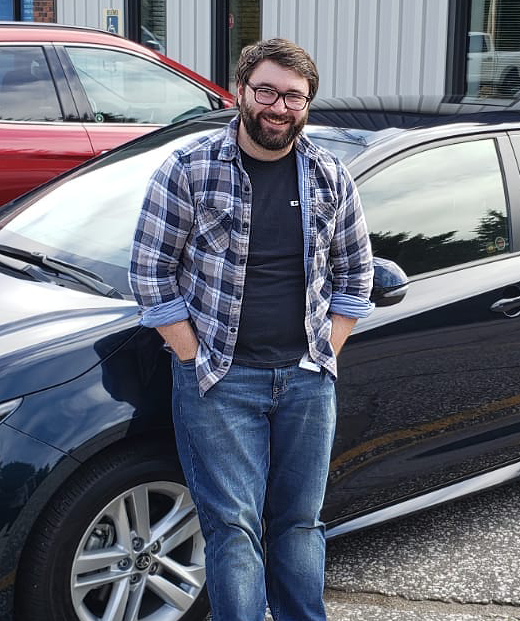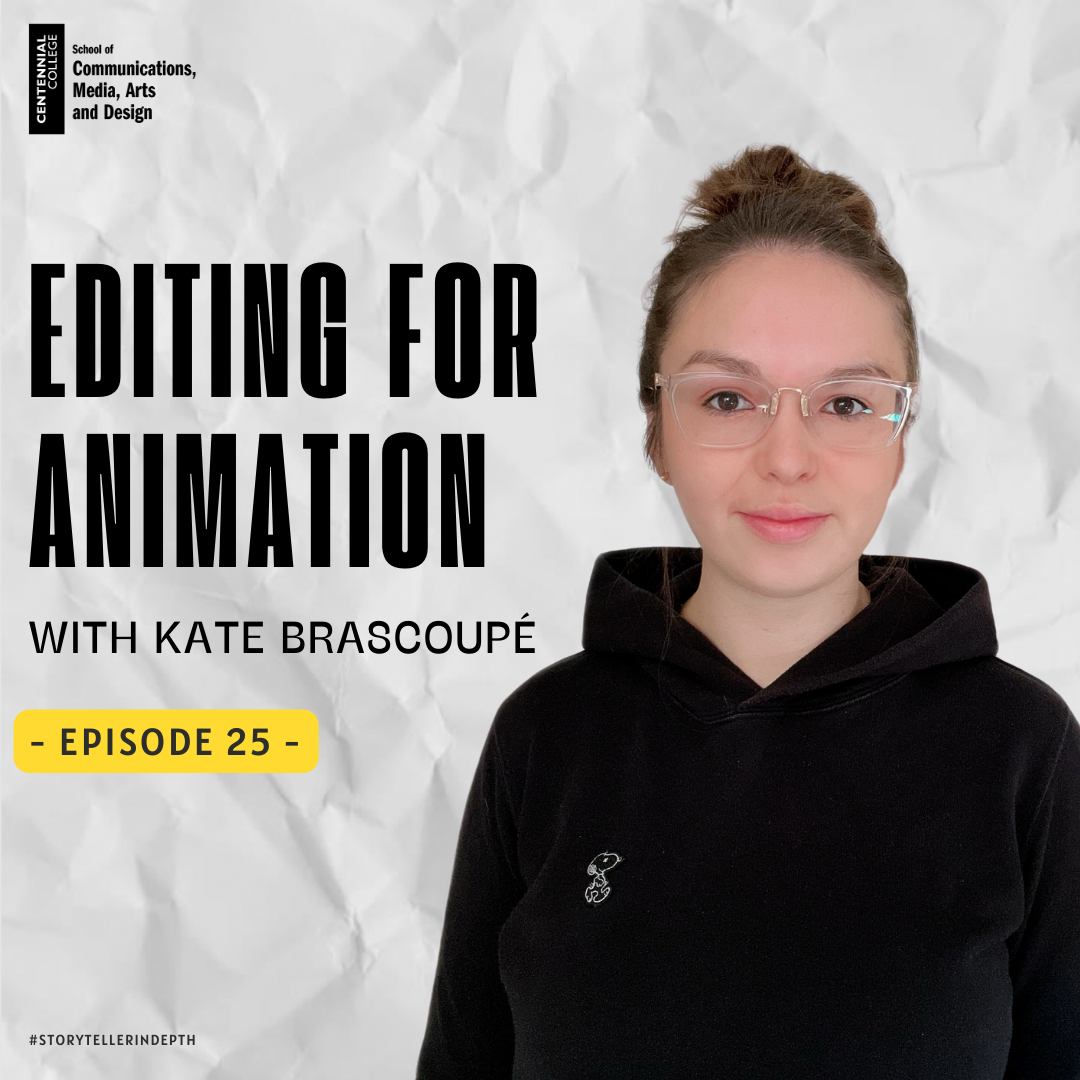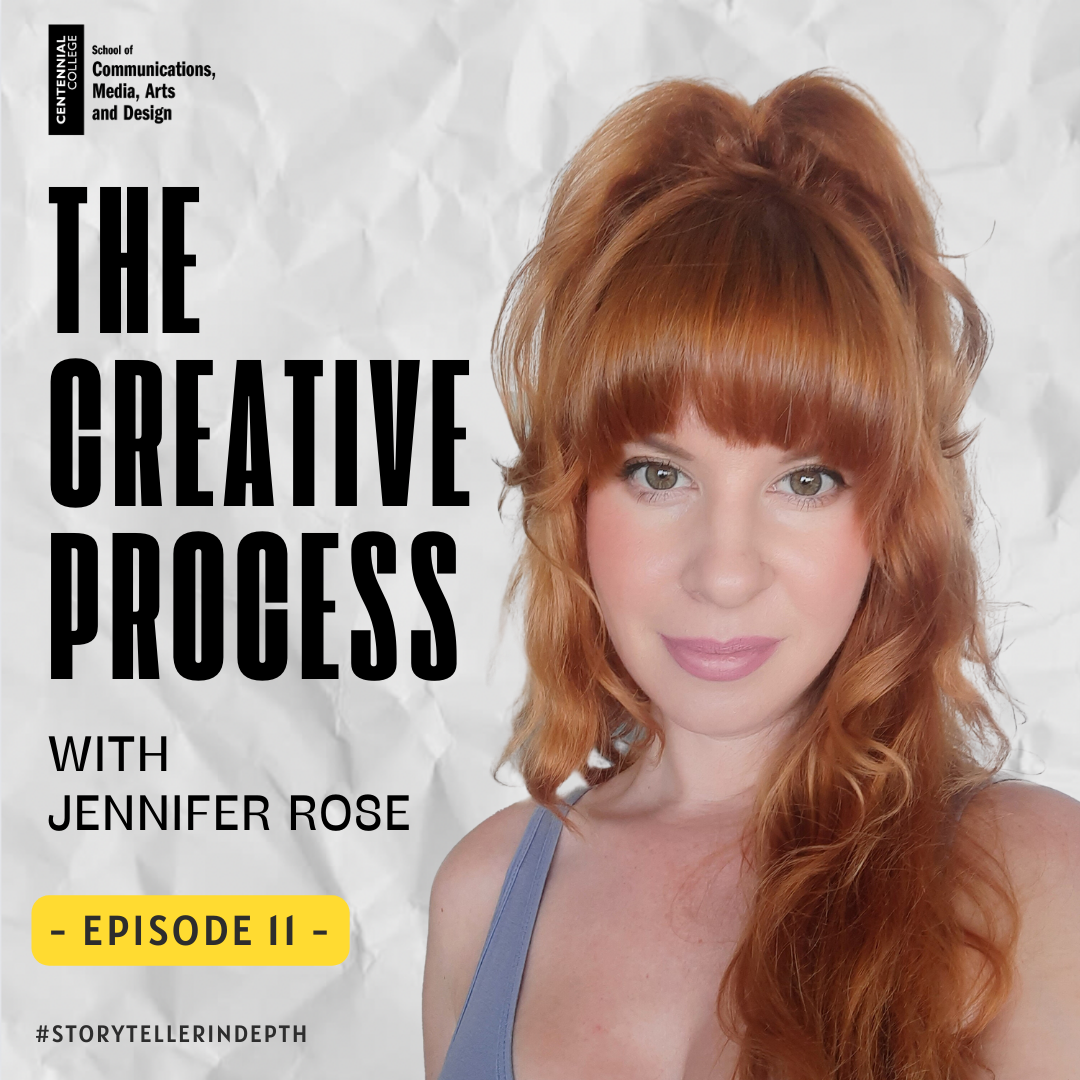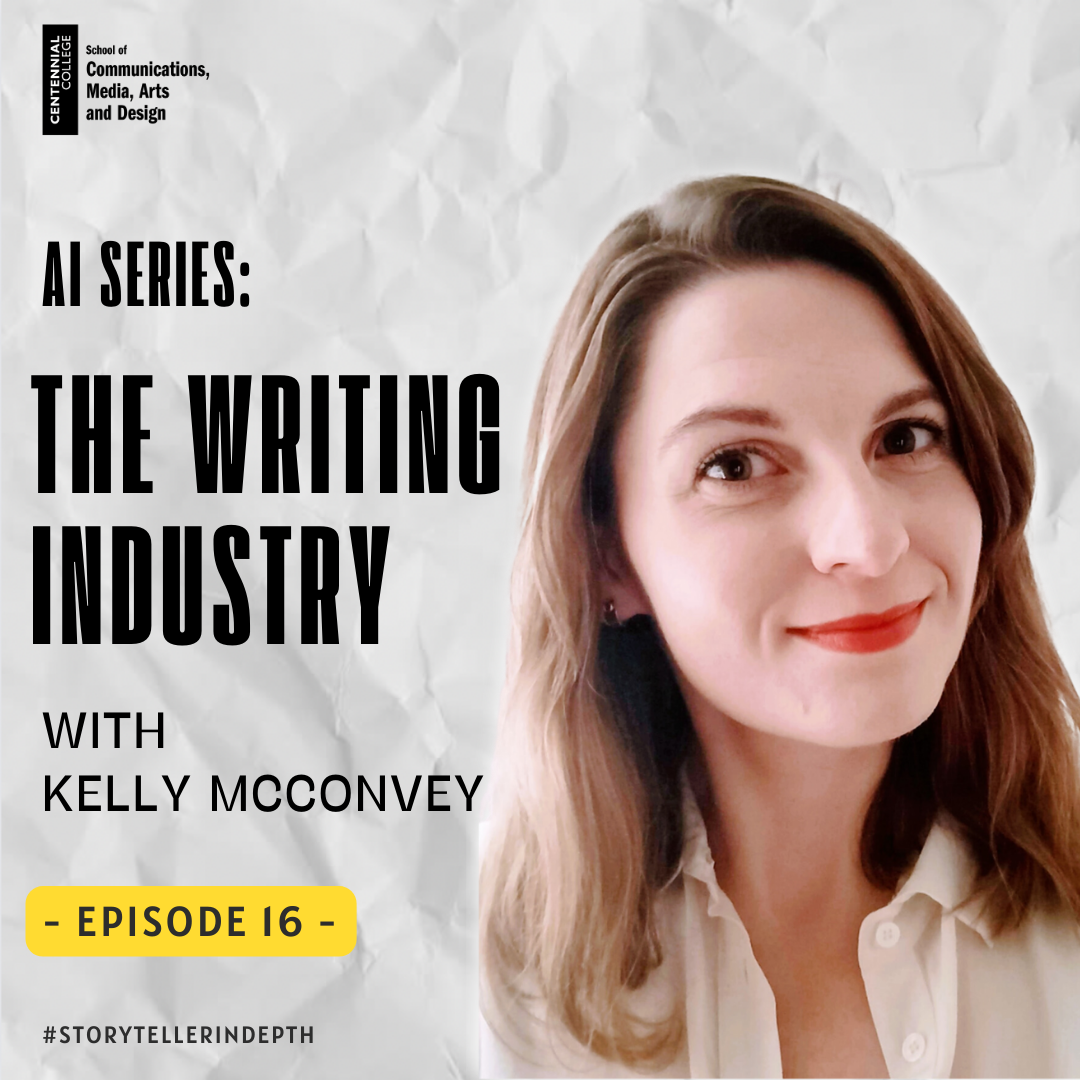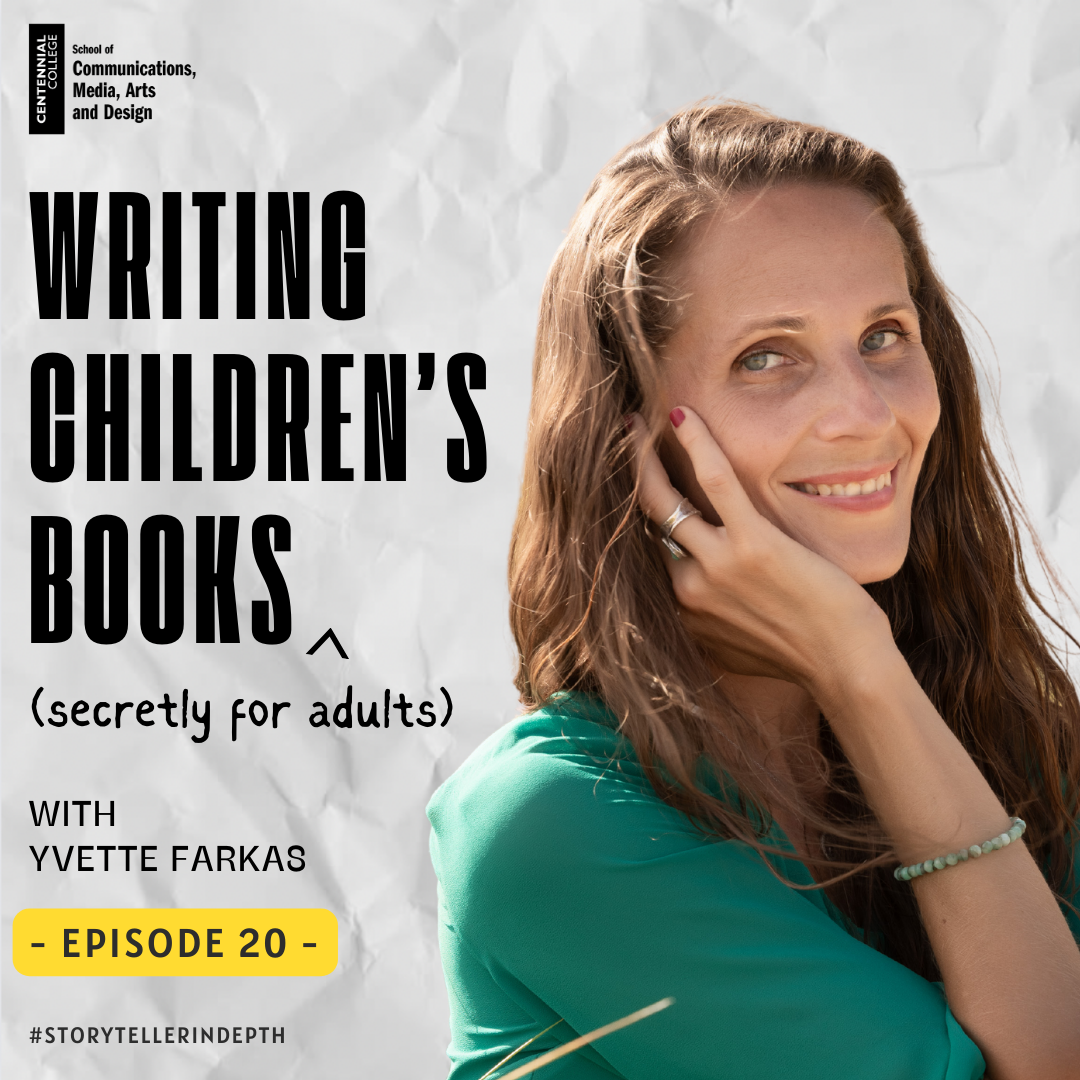Episode Transcript
[00:00:00] Speaker A: Hello, and welcome to Storyteller in depth, a podcast where we go behind the scenes to learn more about the school of communications media arts and designs, people, places, and things. I'm your host, Pat Quigley, who listening right now is watchdoor the Explorer. It's a classic. Well, this classic just got a revamp into a new cg animated series that was just recently released. To give us a behind the scenes look at the show is one of the editors, Kate Brass Coupe, who is a graduate of our broadcasting program.
The art of editing, especially with an animated series, is so fascinating. Paying attention to the intricate details is so important to the story, and there are many factors that go into creating the end product. If you're interested in this industry or what editing on a show as big as Dora the Explorer is like, then keep listening because you don't want to miss out hearing about Kate's experience. Let's get into it.
[00:01:00] Speaker B: Thank you so much, Kate, for being on the podcast today.
[00:01:03] Speaker C: Thank you for having me.
[00:01:05] Speaker B: Yeah, no, it's awesome, and we're going to have a great conversation. But to start off, can you share a little bit of how you got into the field of editing and some of the areas in the industries that you've ventured into?
[00:01:17] Speaker C: I actually decided to get into editing while I was still at Centennial College. I thought that I wanted to be on camera and do broadcasting, but when I got there, I realized that I'm actually, like, terrified of being on camera, but I was still interested in doing the broadcasting thing. So as I was going through the program, I realized editing was my thing. It's really fun and satisfying to put together a video or whatever.
And then after school, I did a couple of different internships, one in television, which was really fun, but I felt like I didn't really know anything at that point. You kind of feel like you know everything when you're graduating from college. But I got out there, and I was like, okay, I need to know more. So I did a second internship, and that was where I got my first job, which was at an editing company in advertising. So I worked there for a number of years, and it taught me so much. I worked really long hours, and that was great. So then once I was kind of done working for, like, 15 hours a day, I decided to go out on my own, and I was doing freelance work for ten years. I've done pretty much everything. I've done short films. I've done corporate work, interview stuff, and now I'm working in animation. So it's been a lot.
[00:03:09] Speaker B: Yeah. You kind of touched every part of the industry. Have you had a favorite part so far?
[00:03:14] Speaker C: I think my favorite part is probably working in animation. It is so much fun. And.
Yeah, like, I mean, obviously the job is creative, so for me, creativity is really important, and so it's like a dream.
[00:03:34] Speaker B: Yeah, for sure. And we talked. You were talking a little bit about editing at the beginning, and, you know, is there an element of that process in general that you think that someone might not realize or expect when they're watching a show in its final stages?
[00:03:48] Speaker C: Well, actually, so one of the things that a teacher told me once is that you're not supposed to notice the editing. Like, when you watch a show or a movie, it kind of is in the background so that you can focus on the story that's being told. But I think something that you wouldn't necessarily know is how much it evolves from when you get the footage to the end product.
So, you know, you could get a script, and it says, do this, this, and this. But when you start putting it together, this, this, and this might not work. So, you know, that's where the creativity and imagination comes in. And eventually, at the end, from the first edit to the very end product, it could be night and day, which has happened many times.
[00:04:46] Speaker B: Oh, for sure, yeah. And I'm like, I'm just thinking back to, like, when I started doing stuff in the broadcasting field, and the technology was so much different. Right. So how was it for you, and how was it like, seeing the technological advances in editing change from when you started to where you are now?
[00:05:07] Speaker C: It has been a dream. When I first started, we were still working on tapes, so. And when you would bring in footage, you would bring in the tape. So if there's 12 hours of footage, you're. You're sitting there for 12 hours and watching the footage go into the program. So now, because everything is digital, it's a lot easier. And because of the Internet, it's even easier, because as soon as it started to go digital, I was still waiting around for hard drives. You know, you have to go into the office and wait for someone to ship you a hard drive, and now it's like, I can just get a link and download it, have a coffee, you know, chill out, and it just makes the process so much easier and faster, which is ideal in this industry, for sure.
[00:06:03] Speaker B: And, I mean, and that's only kind of like touching the surface of it. Right. Like, there's so many more things coming kind of down the pipe, especially with, like, the AI advancements coming in editing, like the other day, I used a bunch of new things in premiere that I didn't even know were there until someone who came into the studio that I work at and said, yeah, you can do this, then throw it into chat, GPT, then throw it back into premiere and it will edit your project for you and you don't have to touch a single thing.
[00:06:29] Speaker C: Right.
[00:06:30] Speaker B: And I went, what? What do you mean? And so I tried it out and.
[00:06:33] Speaker C: I went, wow, I think my control, I don't know if I could do that. But yes, and it's, it is kind of scary at the same time because it's like, will that take over my job? I don't know.
[00:06:46] Speaker B: Yeah. Have you, do you use a lot of those technologies in your work now?
[00:06:52] Speaker C: Not really, because you mentioned premiere. I actually use, because I'm now in doing animation, I actually use a different program called Storyboard Pro because I work hand in hand with storyboard artists. So it's actually not the best editing software. So there's, it has a long way to go. So it is very much button pushing. So it's not as easy to use as like premiere or avid. So, wow.
[00:07:27] Speaker B: So let's, I want to dive into that just a little bit before we start talking about the, one of the cooler things, talking about, you know, working in animation. What are, what are some of the main differences between using like the more premiere after or not after effects premiere, Final Cut, DaVinci Resolve opposed to the storyboard program?
[00:07:52] Speaker C: Well, I think a lot of those programs are a lot more intuitive.
You know, like you're saying there's like AI and stuff.
This is very technical, but like the keyboard shortcuts are, there's more to offer. You know, you can see audio bars and whatever. Like Storyboard pro is more geared towards the storyboard artists.
It's kind of like a mixture of like Photoshop and premiere. I've kind of made my keyboard a lot more like premiere's keyboard, but yeah, it definitely is geared more towards the storyboard artist. But the timeline is very similar to premiere. But it is better in animation to do that because I can just, I know we're going to touch on this later, but like, a lot of my job is getting revised storyboards and putting them back in and it's so much easier just to get, you know, a file that's the same file as what I'm working in because otherwise I have to export and bring it into premiere. So it's, you know, it's a lot of like technical type things that are geared towards animation. So.
[00:09:14] Speaker B: And I've never worked personally on, like, an animation project and gone through that editing process, but is there. Is there some pretty big differences between editing animation to editing? You know, something that is live action per se?
[00:09:28] Speaker C: 100%. I think that, you know, with something like live action, you can see how fast a human runs. You can see how fast a person jumps or whatever.
That can't really change. Like, obviously, you can have the fastest person in the world, but they can only run so fast. With animation, you kind of, like, the sky is literally the limit. They can jump as high as you want. They can jump over a mountain. They can run as fast as, like, a cheetah. You know, there's. It's just the pacing is so much different. Like, it's much more imagination. You know, if they want a character to be swinging on a vine super fast through the jungle, you can do that. So a lot of the times when I'm editing, like, I will act out some of the scenes to be like, okay, like, how fast can someone do this or that? So it's like, yes, the pacing is very different.
It's definitely a lot more imagination based than doing a live action. So that's something I really enjoy.
[00:10:42] Speaker B: That's awesome. And, you know, I kind of alluded to it before, and now we're actually going to get into it is that you are an animator on the new cg animated series door of the Explorer, which premieres on April 12. Now, this iconic character is one that I'm sure a majority of the listeners that are listening right now have a connection with. What has it been like working on the series? And can you take our listeners through the editing process?
[00:11:04] Speaker C: Well, it has been amazing. It has been very challenging. It's probably the most challenging job that I've ever had for a number of reasons. The editing process is definitely different than what you see in a live action series or, you know, interview style stuff.
I work directly with artists, so I get the storyboards directly from the storyboard artist. Then my team and I add in all of the actual audio from, like, the kids voices, which is adorable.
So we add it into the storyboards and then time it out based on the audio and the art that we have. So, you know, that is how you create the story in animation. And then we obviously go back and forth. You know, the script will change, there's music in it. The music will change. You know, they'll watch it back and say, okay, we don't really like, you know, how she moves in this scene. So then we send it to board revisionists, and then I get those back, I add them back in, I retime everything, and then at the end, we send it to animation. And so the job is actually pretty important to the end result because I'm timing the entire show. So when it finally gets to animation, all they have to do is animate to the timing, match the visuals that we've created, and go from there, because, obviously, animating actually takes a lot of time, and you don't want to be doing too many revisions in that stage of the process. So it is an important part. And, yeah, it is very challenging, but it's super rewarding and really fun.
[00:13:10] Speaker A: Awesome.
[00:13:10] Speaker B: And have you had any, like, unique or memorable moments when editing the show so far?
[00:13:16] Speaker C: Yes.
I think the first memorable moment is being told that I was gonna work on the show because I hadn't been working in animation for very long at that point. And they were like, oh, yeah, the next show you're gonna work on is Dora. And I was like, oh, my God. I can't believe that. And, like, even now, I have, like, out of body experiences where I'm just like, is this actually real? Is this actually happening? Which is amazing.
But I think, like, the most memorable thing has been working for the Nickelodeon broadcast of the Super bowl.
We had Dora segments in the Super bowl, and that's mind boggling to me. And then, you know, some of the moments actually went viral on, like, instagram and stuff, and so that was really cool to see people being excited, and. And obviously, I was excited.
And now going into the fact that it's a month away, that it's finally going to be airing, that's insane. I love it.
[00:14:25] Speaker B: So, can you describe the first day of the editing process on Dora, and do you take a similar approach to each project that you work on?
[00:14:35] Speaker C: The first day was very stressful because it's the first time I've worked on such a high profile project, so, obviously, I wanted to do the best job that I possibly could.
So, yeah, that was probably the hardest day of all the days and getting to know my team, which I've come to love, and, yeah, so that was really difficult in terms of whether or not if I take a similar approach. It's really hard to take a similar approach in editing for every project because every project's different.
Every team is different. You know, the expectations are different. You know, some working in advertising, you're spending, like, a week working on 30 seconds. So not even sometimes longer than a week. Like, a month on 30 seconds, something like corporate work, you're working on something that's potentially five minutes, and you have two days to do that animation you're working on eleven to 20 minutes, and you have, like, a few weeks to do it. So every project is completely different.
You know, I have to learn to work with the people that I'm working with. And, yeah, so in terms of, like, technology and that kind of thing, then, yes, I do kind of approach it the same way because I go in, I try and do my absolute best. I look at the scripts and, you know, yeah, it's just always a lot of hard work, always keeping an open mind.
[00:16:23] Speaker B: Did you take any of the lessons that you learned while being a graduate of the broadcasting program at Centennial? Did you take any of those lessons and bring them to the program you're working as a show or any of the other shows you've edited in the past?
[00:16:38] Speaker C: I mean, this is very general, but I learned the programs at Centennial College. So, yes, 100%, you know, learning final cut pro back then, which is now obsolete, but that I definitely took into everything, even today, like, the program I use is still very similar to that. So that was obviously integral to my career. But I think maybe something a little more obscure is like learning to work with a team, learning to work with people you potentially wouldn't typically work with in, like, everyday settings, you know, working with different personalities, which I actually found quite challenging at the time because I was kind of used to wanting to be in control of everything. And, you know, learning that is super important because every job in the industry, you have to work with the team. It's not a solo thing.
And so that's really something that I think is super important.
[00:17:48] Speaker B: It's an understood skill. When you first get into the, get into college and you're going through the program, you're like, okay, I can do this. I can do this by myself. I've been doing this by myself for so long. And then like, okay, you're going to work in a group of four people, and one of those persons may potentially you're going to butt heads with. So you better learn very quickly how to work with everybody on the team to get the project done right. So it's, it's a cool skill that is not explained that you're about to learn when you go to go to school, for sure.
[00:18:22] Speaker C: And I think that was probably my biggest challenge is overcoming that because I probably was the person that was difficult to work with because I was like, okay, let's do this. This and this, this, this. And it's like, no, you know, other people have ideas of what to do, and you have to learn to, like, listen to them and, you know, work together. I think by the end of college, I was definitely understanding that more so.
And just something else, you know, like making good connections because you don't know who that person is going to turn into. You know, I have friends that are now producers, you know, other editors, other different things, and even the teachers.
My first job in advertising I got because one of my teachers, you know, saw something in me and got me this internship, which turned into my first job. So, you know, making connections, you know.
You know, learning from the teachers, you know, taking what they're telling you and taking it in, you know, it's all.
[00:19:28] Speaker B: Super important, big time. We were talking a little bit before the show. You know, I'm a little bit of an animation nerd, and you explained as well that you're quite a large animation nerd, and you. You love this field. Is there anything that you want to work on or anything that you want to pursue one day and creating through animation or want to work on just in general?
[00:19:53] Speaker C: I definitely want to continue working in animation if I could. It wasn't something that I saw as a, like, you don't think, oh, here's SpongeBob SquarePants. There's an editor for that that wasn't in my head. So when I saw that this job was a thing, I was like, this is amazing. You know, I would go to Disney when I was a kid and be like, I would love to be an animator, but guess what? I can't draw. So, you know, this is the next best thing to be able to do that. And, yes, I'm a huge, like, anime and Sailor Moon fan and big SpongeBob fan, and so. But, you know, I'm very happy working on Dora. It's been really fun and, you know, super rewarding.
I wouldn't have thought that. Cause I watched the show to prepare the original Dora, and I was like, oh, you know, like, this is probably gonna be really, you know, easy. No, it's been not easy. It's been amazing. And, you know, I love the music. I. Yeah, it's just been amazing. So I'm already happy. But, yes, if I could work in anime, that would be amazing. Gotta learn japanese, but not sure if I could do that.
[00:21:14] Speaker B: Hopefully someone listens to this podcast and, you know, through the grapevine, it might happen. Who knows? Yeah.
So what is one of your biggest pieces of advice to give somebody who might be listening right now. Who wants to pursue a career in editing?
[00:21:29] Speaker C: Yeah. So I definitely would say that making connections, you know, starting off a college, then, like, going into having a really good internship and liking your internship is very important.
I don't really know anybody that has had, like, in the industry that hasn't started at an internship, and so. And then taking advantage of that internship. Don't be afraid to ask questions. Also, don't ask too many questions. There's a fine line.
And then, you know, working really hard. It's a lot of really hard work, a lot of hours. Don't expect it to be easy. And, yeah, you also have to, like, figure out how to tell stories, which isn't necessarily something that you can learn.
So, you know, watching lots of shows.
And also, I think being passionate is really important. I love what I do, and, you know, there isn't a day where I'm like, ugh, this is gonna be horrible. You know, I hate my job, whatever. You know, I go into every day, and I'm like, this is awesome. So being passionate, working hard, making good connections, you know, having a good internship, all important things.
[00:22:56] Speaker B: Awesome. Well, thank you so much, Kate, for being on the podcast and for chatting with us today.
[00:23:01] Speaker C: Thank you. It was fun.
[00:23:10] Speaker A: Thank you so much, Kate, for such an insightful conversation about the editing industry. If you liked this episode, head over to our instagramtoryory artcenter and let us know your thoughts. We have more episodes on the way, but if you haven't already, be sure to catch up on our previous episodes with topics that range from artificial intelligence to navigating the art industry and so much more in between. Until then, I'm your host, Pat Quigley, and this is storyteller in depth.
